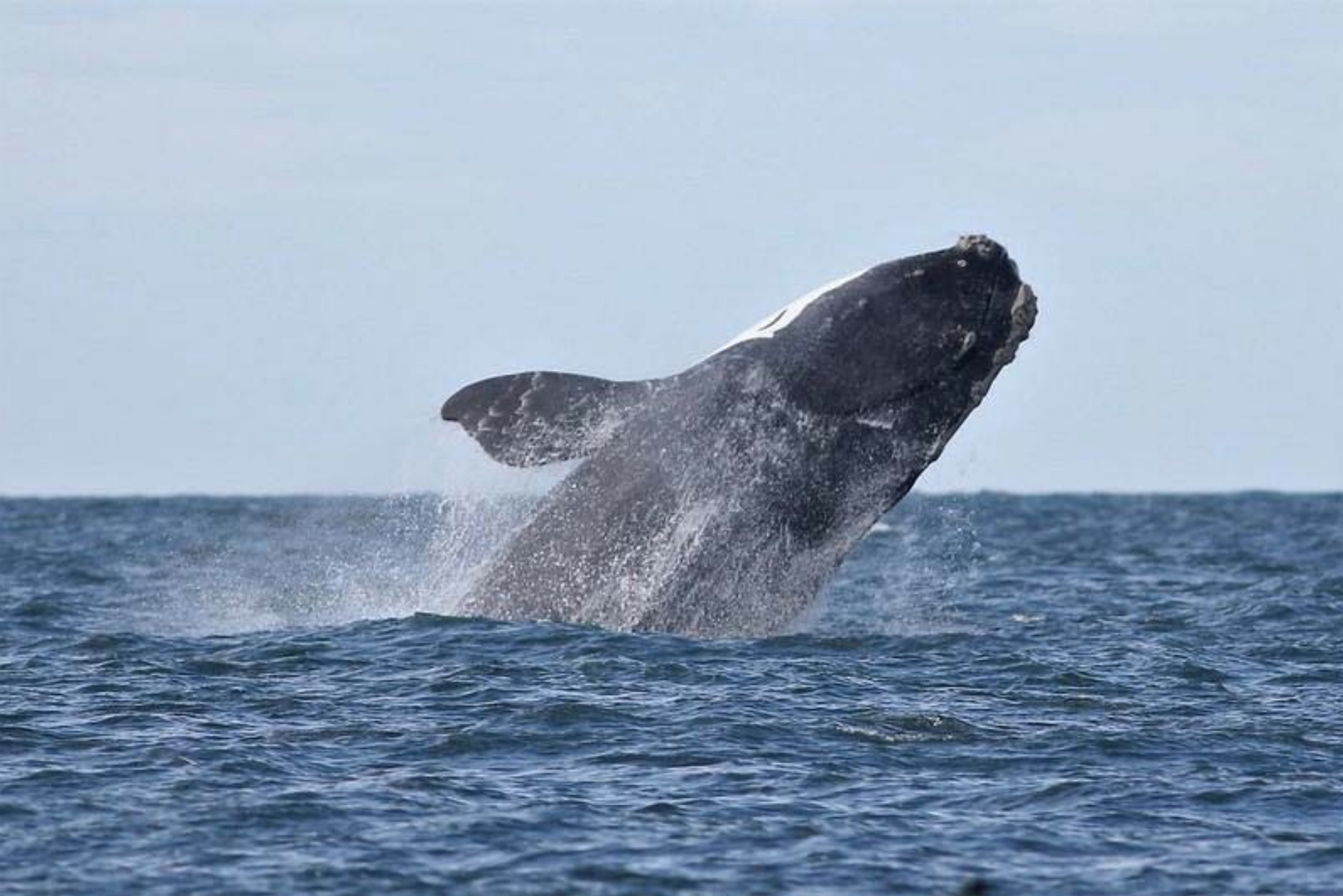(CN) — As right whales inch toward extinction, a group of advocates filed an emergency petition Wednesday asking the federal government to protect dwindling populations from a major threat: commercial fishing gear.
Blaming a specific type of equipment used to catch lobsters, the conservationists say fishing-gear entanglements are largely to blame for right whale populations having dropped 25% over the past decade.
There are only 356 right whales left in the world, according to data from the National Oceanic and Atmospheric Administration, and only 70 remaining breeding females.
“We filed this petition because it is an emergency situation,” Kristen Monsell, oceans legal director at the Center for Biological Diversity, said in a phone interview. “We are killing off right whales faster than they can reproduce.”
Traditional lobster traps rest on the ocean floor, with a vertical line tethering them to a buoy on the water’s surface. But the vertical fishing line creates a trap of its own for unsuspecting right whales, like the ones that gather to feed in the American Northeast — also a hotspot for the lobster industry.
When whales come into contact with the lines, they tend to thrash around, causing further entanglement: “It can wrap around their heads, in their mouths, around their flippers or tails,” said Monsell.
As a result, right whales can end up with amputated fins or tails, or starve to death because the fishing line impedes their ability to filter food from the water. The exhaustion of swimming around towing fishing lines for hundreds to thousands of miles can also cause infertility among an already precariously low population.
Monsell and colleagues brought a lawsuit against the federal government in 2018, challenging how it has managed lobster fishing and arguing for better right whale protections. In April, U.S. District Judge James Boasberg ordered the National Marine Fisheries Service to issue new regulations by the end of May of 2021.
In the interim, the petitioners say it’s necessary to ban vertical lines. That could happen without banning lobster fishing outright, since newer, ropeless traps don’t pose the same risks to the whales.
“The right whales don’t have time to wait,” Monsell said. “We need action now; we needed it years ago.”

The petition is filed under the Administrative Procedure and Marine Mammal Protection acts. The latter “gives the agency the authority and the duty to enact emergency regulations in precisely this circumstance,” Monsell said.
The marine fisheries service itself has “repeatedly acknowledged that the species faces a very real prospect of extinction,” the petition notes. But it has not stepped up regulations to get vertical lines out of key right whale habitats, like those where the whales feed.
The waters south of Martha’s Vineyard and Nantucket are particularly important for year-round foraging and socializing, conservationists say. There are currently no restrictions in the area on fixed gear, like vertical lines and gillnets, designed specifically to protect right whales.
“The federal government just continues to sit on its hands and do nothing, despite its repeated pronouncements that right whales need more protection,” Monsell said.
Even apart from fishing gear, North Atlantic right whale populations are struggling as climate change warms the planet’s poles at rates several times faster than the rest of the world.
Researchers reported in 2019 that the whales’ food supply is being disrupted as warming waters cause ecosystems to shuffle and restructure. That has implications up the food chain.
The 2019 study found that the distribution of a small crustacean that North Atlantic right whales rely on to survive is changing along with the climate. As a result, the whales are switching up their seasonal foraging patterns, in turn making them more vulnerable to being struck by ships or tangled in fishing gear.
Four out of every five North Atlantic whales have been entangled at least once, the petitioners say, and at least 32 whales have been killed by human activity over the past three years.
Right whales going extinct would have profound implications for those who rely on the ocean, Monsell said, including for fishing, because of the animals’ effect on marine ecology.
“They mitigate climate change, and make the ocean healthier with their poo,” Monsell said. “It could cause untold ecosystem impact if we lose these creatures.”
Subscribe to Closing Arguments
Sign up for new weekly newsletter Closing Arguments to get the latest about ongoing trials, major litigation and hot cases and rulings in courthouses around the U.S. and the world.









